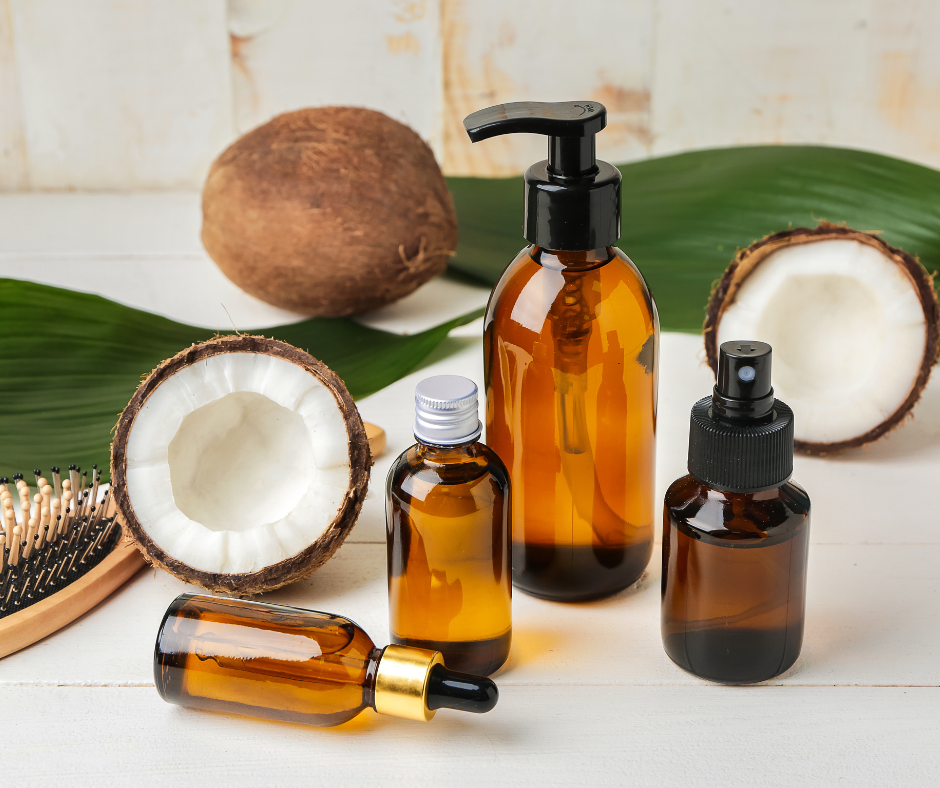When it comes to maintaining luscious locks, the choices in the market can be overwhelming. Many lean towards natural hair care products, believing they offer a healthier alternative to chemical-based options. But is this perception rooted in truth, or is it merely a marketing strategy? This blog post will unravel the truth about natural vs. chemical-based hair product ingredients and explore what contributes to healthy hair.

The Appeal of Natural Hair Care Products
The popularity of natural hair care products has skyrocketed in recent years and for a legitimate reason. Natural ingredients derived from plants, herbs, fruits, and other organic sources, have gained recognition for their potential benefits. These ingredients often lack harsh chemicals like sulfates, parabens, and synthetic fragrances, commonly found in chemical-based products. The allure lies in the perception that these natural ingredients provide a gentler, more nourishing experience for our hair.

Understanding Natural Ingredients
Natural hair care products frequently utilize aloe vera, coconut oil, shea butter, jojoba oil, and tea tree oil. These ingredients offer a range of advantages for hair health:

Moisture and Hydration
Natural oils like coconut and jojoba oil can help hydrate and nourish the hair, preventing dryness and frizz.
Scalp Health
Ingredients like tea tree oil and aloe vera have soothing properties that can alleviate scalp issues such as dandruff and irritation.
Strength and Protection
Plant-based proteins, such as wheat and keratin, can fortify the hair shaft, making it stronger and more damage-resistant.
The Misconception of Chemical-Based Hair Products
While "chemical-based" may sound intimidating, it clarifying the misconception that all chemical ingredients harm hair health is crucial. Many commercially available hair products contain synthetic chemicals that have undergone rigorous testing and are deemed safe for use. These ingredients are often formulated to address specific hair concerns efficiently.

Understanding Chemical Ingredients
Chemical-based hair products incorporate a range of ingredients designed to provide specific results:
Cleansing Agents
Surfactants, such as sodium lauryl sulfate (SLS), are commonly used to create lather and remove dirt and excess oil from the hair and scalp.
Preservatives
Parabens and other preservatives help extend the shelf life of products and prevent the growth of harmful bacteria and fungi.
Styling Aids
Chemical compounds like polymers and silicones create hold, enhance shine, and reduce frizz.
The Balanced Approach to Hair Care
Rather than favoring one category over the other, a balanced approach to hair care can yield the best results. Both natural and chemical-based hair products can play a role in maintaining healthy hair. The key is understanding your hair's unique needs and choosing products that align with those requirements.

Tips for Choosing Hair Products
Identify Your Hair Type
Determine your hair's texture, moisture level, and specific concerns (e.g., dryness, frizz, or damage).
Read Labels
Please be sure to look for products that prioritize natural ingredients while also considering the presence of beneficial chemical compounds.
Trial and Error
Experiment with different products to find the best ones for your hair. Remember that a thing else may work better for you.
Check out “Ways to Know If Your Hair Is Healthy” for gorgeous and strong hair.
The truth about natural vs. chemical-based hair product ingredients lies in striking a balance between the two. Natural ingredients can provide nourishment and gentle care, while well-formulated chemical-based products offer targeted solutions. You can achieve healthy, dynamic locks by understanding your hair's unique needs and selecting products accordingly. Remember to prioritize ingredients that promote moisture, scalp health, and hair strength. Additionally, reading product labels and conducting trial and error will help you find the perfect hair care regimen tailored to your needs.

Notably, "natural" doesn't automatically guarantee a product's effectiveness or safety. Similarly, not all chemical-based ingredients are harmful. The key is being informed and discerning about the ingredients in your products.
Ultimately, healthy hair results from a comprehensive approach beyond just the products you use. Factors such as a balanced diet, proper hydration, and minimizing heat and chemical damage from styling tools and treatments also play a significant role in maintaining optimal hair health.


